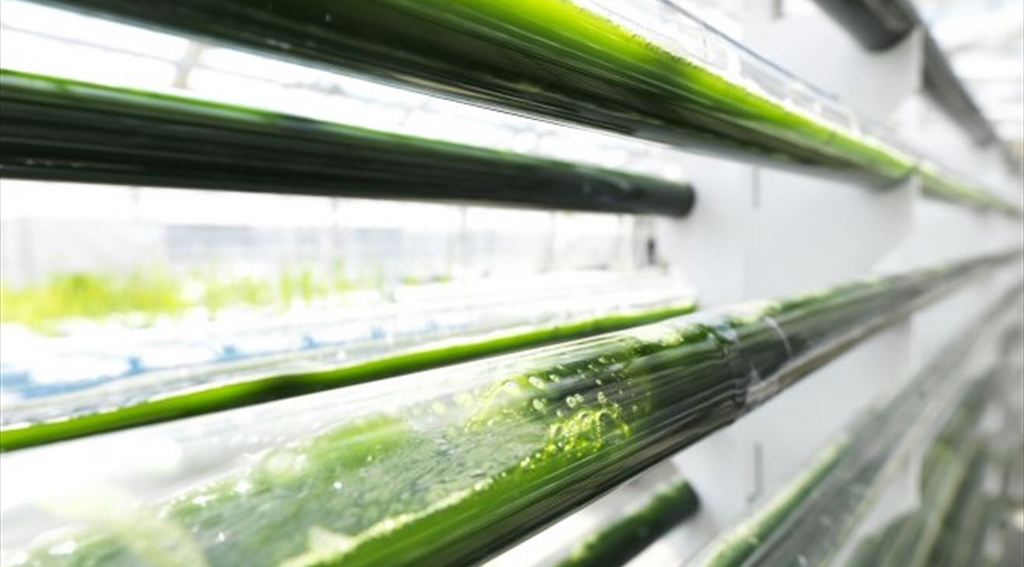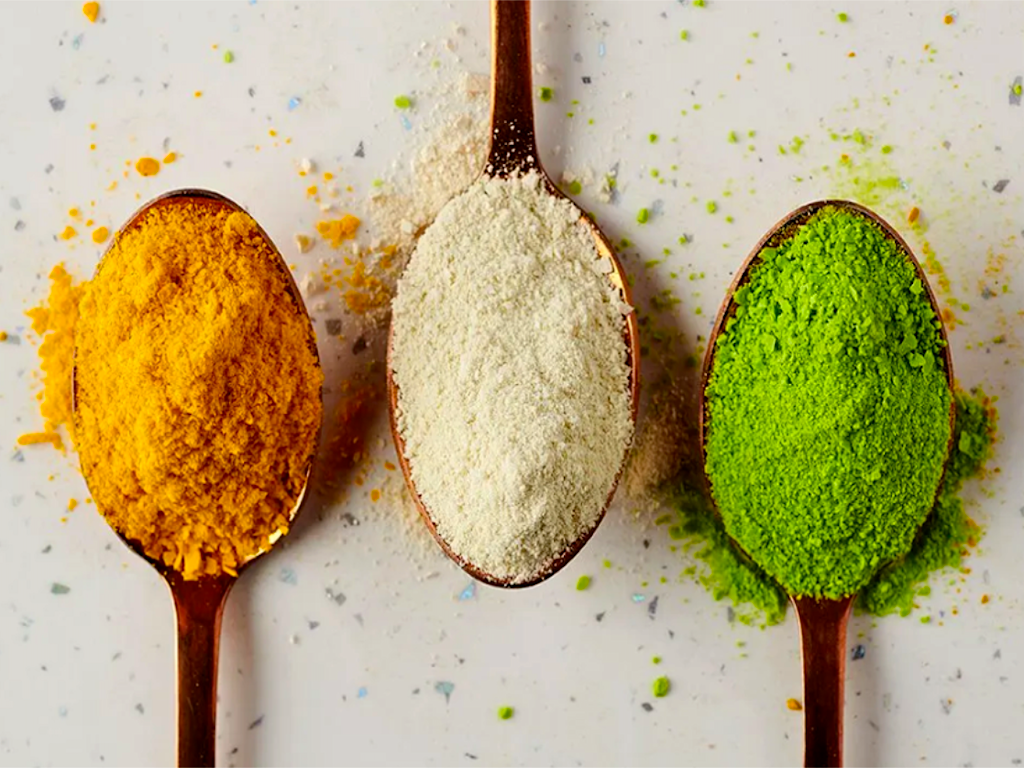4 Mins Read
In just three decades time, we could be looking at a planet of 10 billion people, and we’re going to have to drastically change our current food system if we are to feed the entire world healthily, safely and sustainably alongside the challenges we will face due to climate change. While there is no single answer to this enormous global issue, one particular ingredient is now turning heads. From government backing to big food industry leaders like Unilever, microalgae has come under the spotlight for its game-changing potential as a sustainable, nutrient-rich future food solution.
Packed with protein, antioxidants, and plant-powered vitamins and minerals like omega-3 fatty acids, microalgae ingredients like chlorella and spirulina have been widely recognised as healthy superfoods but hasn’t quite managed to win the taste buds of mainstream consumers, mainly because of its smell and taste.
But now, food techs and scientists are developing ways to improve the sensory qualities of microalgae, and big players in the food industry want in on this sustainable protein-rich ingredient. According to recent research, microalgae presents a huge opportunity with a protein yield of anywhere between 4 to 15 tons per hectare annually, far higher than the 0.6 to 1.2 tons per hectare each year for wheat, pulses, legumes and soybeans. It also requires far fewer resources compared to other land-based crops, as it can be cultivated in absence of freshwater or pesticides, which also makes it a resilient crop against the future weather changes imposed by the climate crisis.
“Microalgae offer much untapped potential as a viable, climate-friendly protein alternative,” said Alejandro Amezquita, the director of future bio-based ingredients R&D at consumer goods behemoth Unilever. “They have a significant part to play in food system transformation.”
Amezquita’s comments were made at Unilever’s announcement in 2020 on its partnership with Algenuity, a U.K.-based algae company that has found a way to overcome the adverse taste of microalgae. Called Chlorella Colours, the microalgae is neutral in smell and flavour, and comes in a variety of colours without any loss of its nutritional value.
Microalgae offer much untapped potential as a viable, climate-friendly protein alternative. They have a significant part to play in food system transformation.
Alejandro Amezquita, Director of Future Bio-Based Ingredients R&D, Unilever
“Our Chlorella Colours platform provides plant-based ingredients that are sustainable, natural, non-GMO and protein-rich with neutral flavours,” explains Andrew Spicer, CEO and founder of Algenuity. “They are also vegan-friendly, making them extremely relevant to today’s growing consumer appetite for more plant-based foods with additional functional benefits.”

With its emulsifying properties, Unilever has plans to incorporate the sustainable superfood ingredient into its products as a replacement for eggs, making it particularly suitable for the conglomerate’s growing line of plant-based offerings, such as Hellmann’s vegan version of condiments like mayonnaise or plant-based meats under its Vegetarian Butcher brand.
Our Chlorella Colours platform provides plant-based ingredients that are sustainable, natural, non-GMO and protein-rich with neutral flavours. They are also vegan-friendly, making them extremely relevant to today’s growing consumer appetite for more plant-based foods with additional functional benefits.
Andrew Spicer, CEO and Founder of Algenuity
The Unilever-Algenuity partnership came shortly after Denmark’s ministry of higher education and science financed the “Microalgae for food” project through its Danish Food Innovation body.
Under the grant, DKK 750,000 (US$118,570) was awarded to the team from the Technological Institute of Denmark, the University of Copenhagen, microalgae ingredient company NatuRem Bioscience, membrane filtration company Sani Membranes, and Danish Brewery Kunstbryggeriet Far & Søn, who are collaborating to “brew” a variety of microalgae, chlorella, using byproducts from the beer industry.

We brew the algae on side streams from the beer industry, we use new low-energy process methods and not forgetting the grateful algae that grows really efficiently.
Christian Kjølby, CTO at NatuRem Bioscience
“What is particularly interesting about this project is the sustainability aspect. We brew the algae on side streams from the beer industry, we use new low-energy process methods and not forgetting the grateful algae that grows really efficiently,” Christian Kjølby, CTO at NatuRem Bioscience, told FoodNavigator in a recent interview.
The backing of the ministry comes after Denmark set up a new National Bioeconomy Panel dedicated to identifying novel protein sources that are sustainable, climate-friendly and healthy. Researchers working on the “Microalgae for food” project hope to be able to develop a new microalgae ingredient that is protein-rich, helps to slash food waste from brewer’s spent grains, and can be supplied to large food manufacturers in the near future.
“The algae is a whole new potential food ingredient, which makes it super interesting to work with, and our expectation is that we finally have a finished protein source in powder form that can be used directly in the industry,” said Kjølby.
Lead image courtesy of Algenuity.




